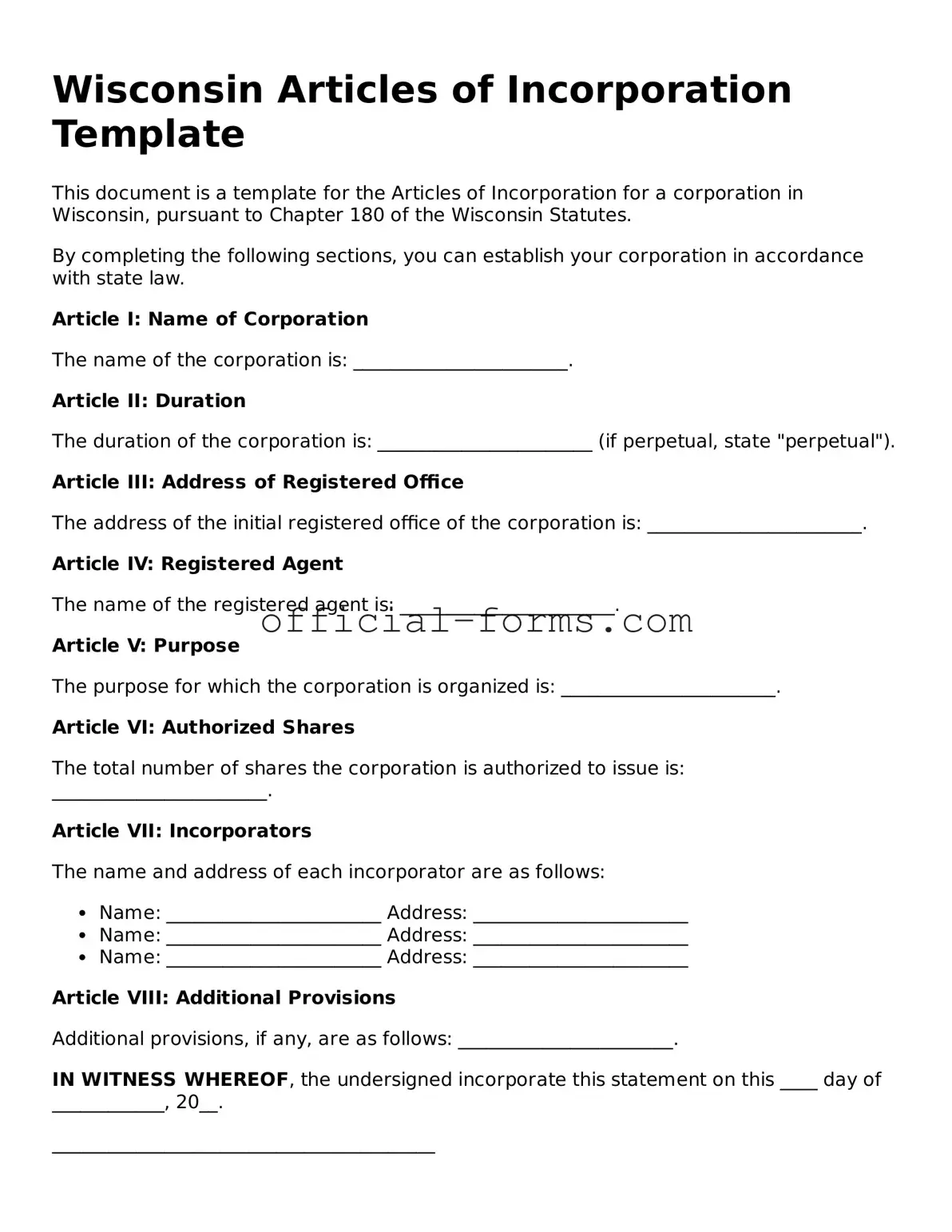Official Wisconsin Articles of Incorporation Document
The Wisconsin Articles of Incorporation form is a legal document that establishes a corporation in the state of Wisconsin. This form outlines essential details about the corporation, including its name, purpose, and structure. Completing this document is a crucial step for anyone looking to start a business in Wisconsin.
Open My Articles of Incorporation Now

Official Wisconsin Articles of Incorporation Document
Open My Articles of Incorporation Now
Don’t leave your form incomplete
Finish Articles of Incorporation online quickly from start to download.
Open My Articles of Incorporation Now
or
➤ PDF
